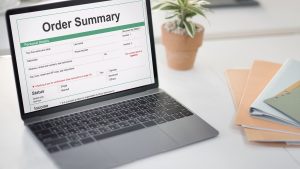Accounting is among the most tedious and time-consuming tasks in an organization. Unfortunately, it is the most vital component in your business, and a simple error can lead to devastating results. Most accountants feel that traditional accounting methods are no longer enough to stay competitive. For this reason, most businesses have adopted financial tools, like Nordiclenders, to make the work easier, faster, and smoother. Here is how financial tools can help you save money.
Table of Contents
1. Reduce Operation Costs.
Although financial tools require investment, they help save a lot of money in the long term. Integrating a financial tool into your business will eliminate the need to hire a bookkeeper or bill additional time required to check your books. The system will also reduce the time needed for data entry, allowing your accountant to spend time evaluating business performance. A financial tool can also streamline your cash flow since it focuses on your payables and receivables. This means that you will know where your money is going.
2. Data Accuracy.
Humans are to error. However, these errors can cost your business a significant amount. A financial tool significantly reduces these errors. A reliable accounting tool will handle even the most complicated calculations in your financial statement. However, you must enter the correct data in the tool.
3. Make Tax Filing Convenient.
Every business owner knows that tax filing is challenging since you must consider many laws and provisions. However, this is not an excuse to make errors in tax filing. A minor mistake can invite a hefty penalty. Fortunately, financial tools have made these errors a thing of the past. The tool will help you organize receipts and invoices to smoothen the tax compliance and filing process. Some accounting tools can even format invoices automatically to ease your job during tax season further.
4. Data Security.
Cyber-attacks are on the rise, and the need for data safety is now more essential than before. A cyber-attack can cause significant losses to your business, or you could lose the company. A reliable financial tool includes security layers like two-factor authentication, authorized access, and regulatory backup. Some companies use other security measures like encryption and multiple data storage centers to protect their company information.
5. Accessibility.
A financial tool is cloud-based, meaning you have the flexibility to work from anywhere. You can access the financial information you need anywhere and anytime. You only need a stable internet connection. This is an excellent element for business owners who travel a lot. You can process payments quickly, check documents, create reports, and do more without being physically present in your office.
6. Better Analysis and Planning.
The ability to predict the market conditions that will affect your business or have a financial perspective of how to expand your company is essential. Financial tools build the foundation for successful business strategies. You will forecast your financial situation, assess a new business venture, and analyze the potential for vital market trends. This will prevent you from investing in places that will lose you money.
A financial tool is an essential investment, whether you are a start-up or a significant enterprise. However, ensure you have a reliable tool to get the most out of your investment.
Featured Image by Gerd Altmann from Pixabay




